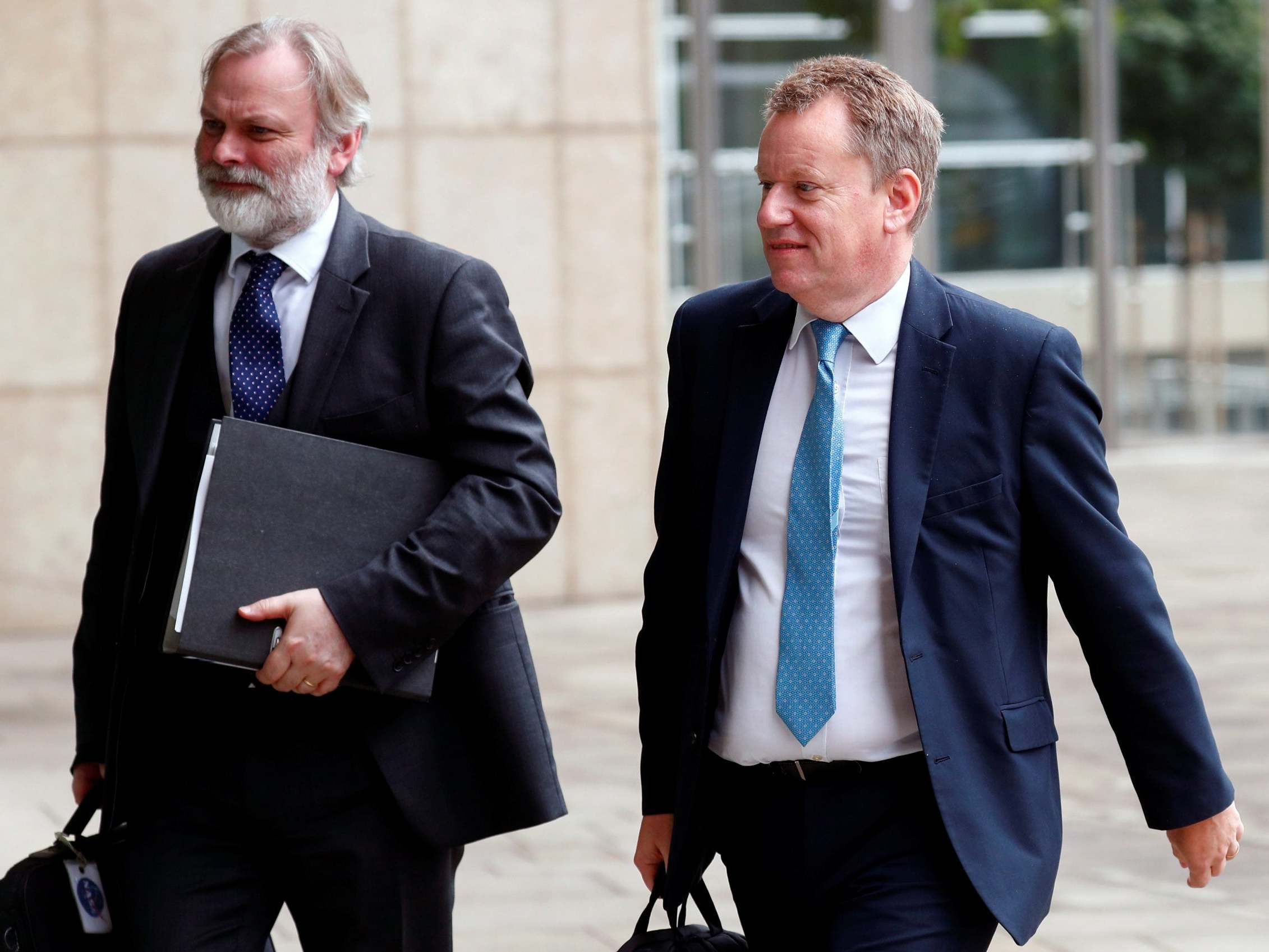Your support helps us to tell the story
From reproductive rights to climate change to Big Tech, The Independent is on the ground when the story is developing. Whether it's investigating the financials of Elon Musk's pro-Trump PAC or producing our latest documentary, 'The A Word', which shines a light on the American women fighting for reproductive rights, we know how important it is to parse out the facts from the messaging.
At such a critical moment in US history, we need reporters on the ground. Your donation allows us to keep sending journalists to speak to both sides of the story.
The Independent is trusted by Americans across the entire political spectrum. And unlike many other quality news outlets, we choose not to lock Americans out of our reporting and analysis with paywalls. We believe quality journalism should be available to everyone, paid for by those who can afford it.
Your support makes all the difference.Brexit trade talks have stalled, with negotiators yet to agree a timetable for videoconferencing to replace meetings disrupted by the Coronavirus pandemic.
A spokesperson for the EU Commission’s negotiating team said on Tuesday that, Michel Barnier, the chief negotiator, would talk to his UK counterpart David Frost next week “to try and reach agreement on a timetable for the next steps in order to move the negotiations forward”.
Discussions last week and this week have been limited to “technical” contact between the two sides, the spokesperson said – with no real negotiation taking place despite major distances between both sides.
The news of stalled talks come as a new poll shows strong public support for extending the transition period, during which the UK stays tied to EU rules and keeps the benefits of membership.
Once the transition period ends, currently due at the end of the year, the UK will leave with whatever trade deal it has with the bloc – and crash out on economically damaging World Trade Organisation terms if it has none.
Boris Johnson’s administration has long said it will not extend the period for any reason, and has written the policy into law.
But a new survey, carried out by pollsters JL Partners for WPI Strategy, found that just 19 per cent of people support the government’s strategy of severing ties with the EU at the end of 2020 no matter what.
By contrast 38 per cent of British people think the government should extend the UK’s transition period indefinitely for however long it takes until the coronavirus outbreak is over.
A total of 67 per cent of voters think the transition should be extended in some form, with others endorsing six months to a year as possible timescales.
On Tuesday afternoon a European Commission spokesperson sent their best wishes to Boris Johnson, who is in intensive care with a Covid-19 infection.
“On behalf of the president and the whole college we wish the British prime minister Boris Johnson a speedy recovery,” they said.

Both David Frost and Michel Barnier have also previously had to self-isolate with Covid-19 symptoms.
Two rounds of talks due to take place have now been postponed – one originally scheduled to take place in London and one in Brussels. It is understood that the UK believes videolink talks are possible, but the EU side is more sceptical, arguing that officials would still have to gather together on one side and risk infection.
The face-to-face meetings that took place in Brussels before the pandemic involved hundreds of officials. Both sides have traded legal text for proposed free-trade agreements, but are at odds on governance, the shape of the agreement, fisheries and the extent to which the UK will stay aligned with EU rules.
Explaining the state of negotiations, a spokesperson for the EU Commission’s negotiating team said: “As for the negotiations proper last week, there were technical contacts between the two teams to clarify the relevant legal text.
“Yesterday the deputy head of the taskforce spoke to David Frost, the lead negotiator from the UK in order to take stock on the work that has been done.
“Obviously we will remain in contact with the UK this week. I will also confirm that next week Michel Barnier will speak to David Frost in order to try and reach agreement on a timetable for the next steps in order to move the negotiations forward.”
The spokesperson added: “Awaiting that meeting I can say nothing else at this stage.”

Join our commenting forum
Join thought-provoking conversations, follow other Independent readers and see their replies
Comments